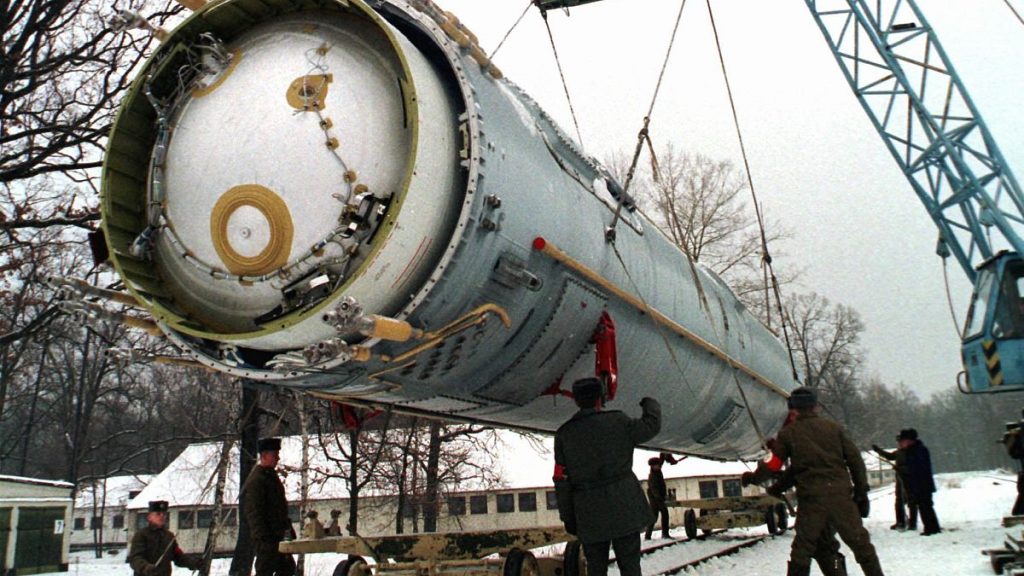Ukraine’s President Zelenskyy emphasized the necessity of NATO membership for security against Russian aggression, denying any plans to pursue nuclear weapons. Zelenskyy clarified that Ukraine gave up its nuclear arsenal under the 1994 Budapest Memorandum in exchange for security guarantees from major nuclear powers, a decision that now seems to have been a mistake. Despite assurances from major nuclear powers to protect Ukraine’s territorial integrity, Russia has violated Ukraine’s sovereignty multiple times, leading Ukraine to seek NATO membership as its only viable option for security.
The Budapest Memorandum, signed in 1994, saw Ukraine relinquish its nuclear arsenal inherited from the Soviet Union in exchange for security assurances from major nuclear powers. However, 20 years later, Russia invaded Ukraine, annexed Crimea, and occupied territories in the east of the country. Meanwhile, Russia has continued to modernize its nuclear arsenal, recently attempting to test its latest intercontinental ballistic missile, the RS-28 Sarmat, which is intended to replace an older missile developed in Ukraine. In response to Zelenskyy’s statements, Russian President Putin vowed not to allow Ukraine to acquire nuclear weapons, asserting that Russia would respond appropriately to any such attempts.
Andrii Yermak, head of the Office of the President of Ukraine, clarified that Ukraine’s decision to give up nuclear weapons in 1994 was its own choice and that the current focus remains on seeking security guarantees rather than nuclear armament. Yermak highlighted the unfair outcome of the Budapest Memorandum for Ukraine but emphasized that Kyiv would not respond to injustice in kind. He stated that amidst the ongoing war in Ukraine, the Ukrainian people had not descended to the level of aggressors, highlighting the stark differences between Ukraine and Russia in their approach to conflict and international relations.
Despite Zelenskyy’s earlier comment suggesting that joining NATO was the only alternative to nuclear weapons for Ukraine, he later clarified that Ukraine was not pursuing nuclear armament but saw NATO membership as essential for its security. The Ukrainian foreign ministry reaffirmed its commitment to nuclear non-proliferation and maintaining compliance with international agreements, including the Treaty on the Non-Proliferation of Nuclear Weapons. Zelenskyy’s reference to the Budapest Memorandum underscored the significance of security guarantees for Ukraine and the complexities of international agreements in the context of ongoing Russian aggression in the region.
Russia’s continued aggression in Ukraine, including the illegal annexation of Crimea and ongoing occupation of eastern territories, has fueled Ukraine’s push for NATO membership as a means of enhancing its security. With Russia’s modernization of its nuclear arsenal and President Putin’s clear opposition to Ukraine acquiring nuclear weapons, the path forward for Ukraine remains challenging. Clarifications from Ukrainian officials, including Yermak, aim to reinforce Ukraine’s commitment to peaceful resolutions and security guarantees while navigating the complex dynamics of international relations in the face of ongoing conflict and geopolitical tensions.


